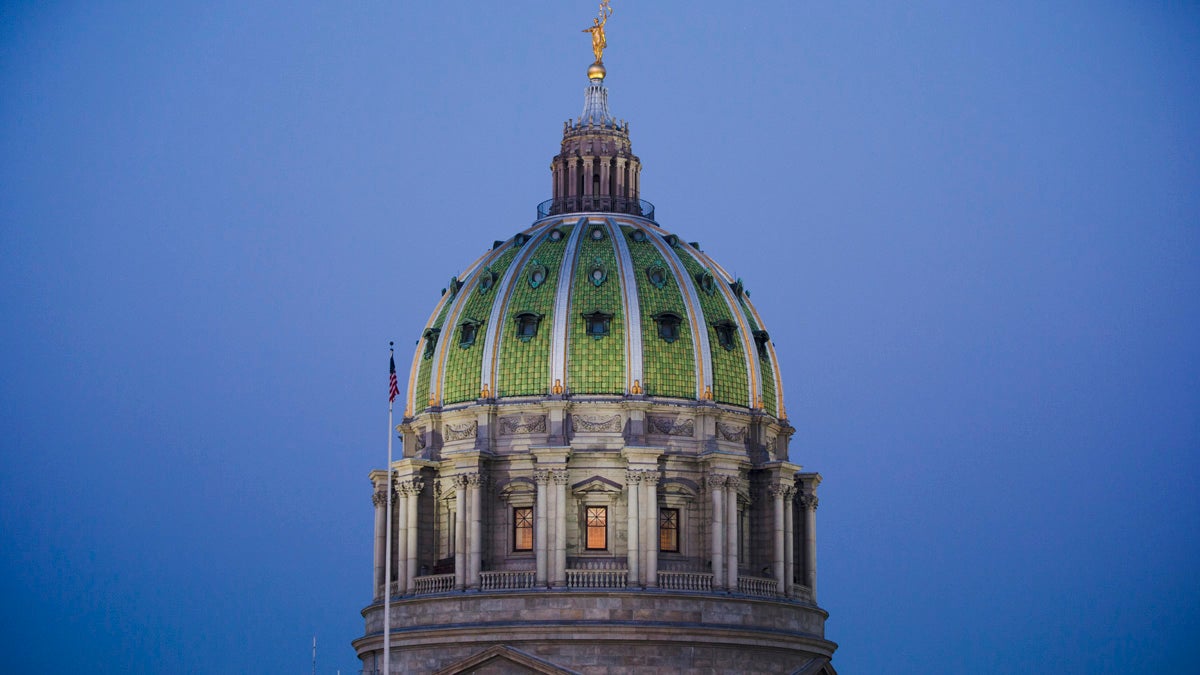Pa. budget ‘back on track’ after House changes direction

A Pennsylvania budget agreement is one step from the governor's desk, after a series of parliamentary moves in the House positioned a $30.8 billion spending plan for a final vote Wednesday. (AP photo/Matt Rourke)
A Pennsylvania budget agreement is one step from the governor’s desk, after a series of parliamentary moves in the House positioned a $30.8 billion spending plan for a final vote Wednesday.
Nearly 20 Republicans joined with Democrats Tuesday afternoon in a preliminary vote to support the proposal backed by the Senate and Gov. Tom Wolf.
It was a stunning course reversal by the House, where the Republican majority had begun readying a short-term spending plan, all but abandoning efforts to reach a compromise on a full-year’s budget.
It was a Philadelphia Republican who initiated the move to resurrect the budget agreement that the House had previously rejected.
“It’s basically sitting around and saying to one another, like, look … what parliamentary maneuver can we do to put this back on track?” said Rep. John Taylor, R-Philadelphia. He spoke to reporters shortly after the House voted 100-97 to position the budget bill for a final House vote on Wednesday. A temporary rule adopted by the House on Tuesday allowed the bill to advance with a simple majority vote, instead of the usual required sum of 102 votes.
“Believe me — many, many members who voted ‘no’ in there are very glad this happened,” said Taylor. “Everyone needs a way out of this.”
Lawmakers have pointed to a drumbeat of warnings about the dire consequences of allowing the state’s budget stalemate to drag on into 2016.
School districts, contractors, nonprofits, and local governments that have been cut off from their state aid since July are exhausting their borrowing capacity or their ability to absorb the loss. Schools have threatened to close their doors after the holidays. Local governments are refusing to remit tax funds to the state. Social services nonprofits are furloughing employees; some are shutting down.
“This is like real stuff. This is not student council anymore,” said Taylor. “This is some real-life consequences if this isn’t done in the next couple days.”
Wolf called the House vote a “nice step in the right direction,” acknowledging that the budget isn’t final yet.
“We still have a ways to go,” Wolf told reporters outside his office. The governor did not take questions – and there are many.
How will lawmakers vote to pay for the budget’s six percent spending increase over last year? What changes are being negotiated for a proposed pension overhaul, considered by the Senate to be essential to the budget compromise? If the budget does pass the House, can the governor sign it into law without a revenue package in place to support the new spending?
But for starters: Can the House passed the $30.8 billion budget on Wednesday, when it will require 102 (not 100) votes?
“I’m optimistic,” said Rep. Joe Markosek, D-Allegheny, after the House’s preliminary budget vote. He said he thought Tuesday showed that a majority of members would “pass all this and get it to the governor’s desk and we’ll be able to go home.”
WHYY is your source for fact-based, in-depth journalism and information. As a nonprofit organization, we rely on financial support from readers like you. Please give today.

